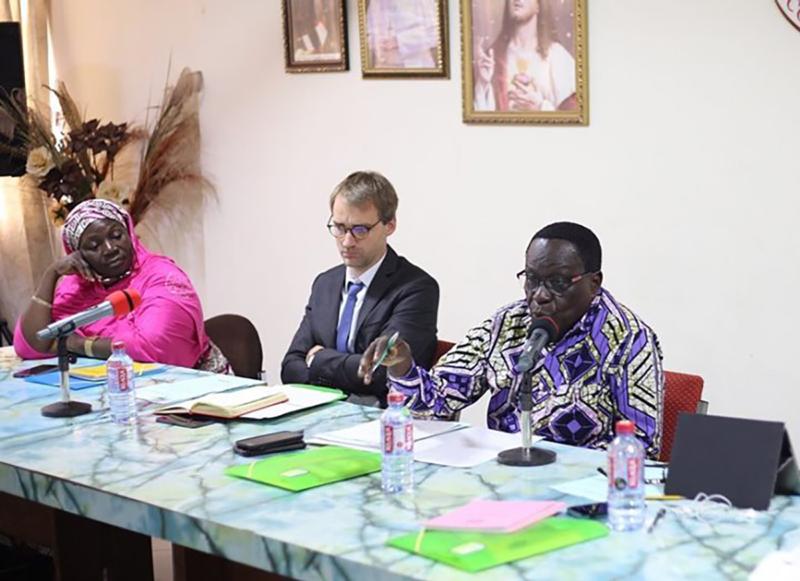
By Damian Avevor
ACCRA, Ghana (CNS) — The growing amount of waste generated by outdated computers, cellphones and electrical machinery poses serious environmental challenges around the world.
Recognizing the difficulty, Caritas Ghana, the development agency of the Ghana Catholic Bishops’ Conference, organized a workshop for faith-based organizations to help employees learn how to safely and effectively dispose of such items.
The program Aug. 22-23 stemmed from Pope Francis’ social-environmental encyclical, “Laudato Si’, on Care for Our Common Home” and took participants through steps they can follow to adhere to the country’s standards governing what is commonly called e-waste.
Samuel Zan Akologo, executive secretary of Caritas Ghana, said the bishops’ conference directed his agency to develop a comprehensive program for responsibly disposing e-waste. He stressed that the bishops are seeking to prevent potential damage to the environment, human health and livelihoods through improper disposal of electronic equipment.
The training, he explained, covered equipment beyond cellphones and computers and included air conditioners, refrigerators, television sets, washing machines, vacuum cleaners, and even high-efficiency lightbulbs — all of which contain harmful chemicals and components.
The program focused on Ghana’s 2016 environmental e-waste disposal law. He said faith-based organizations and churches can become leaders in the e-waste field because they are rooted in local communities, Akologo said.
Workshop participants learned that Ghana expects the disposal and recycling efforts would create up to 22,000 jobs for youth. Many of the jobs will be at a state-of-the-art recycling facility to be constructed in central Accra.
In addition, a network of collection centers is being established. The centers will funnel e-waste to the main facility.
The law also established a fund to support academic and research institutions studying how to better handle and recycle e-waste.






